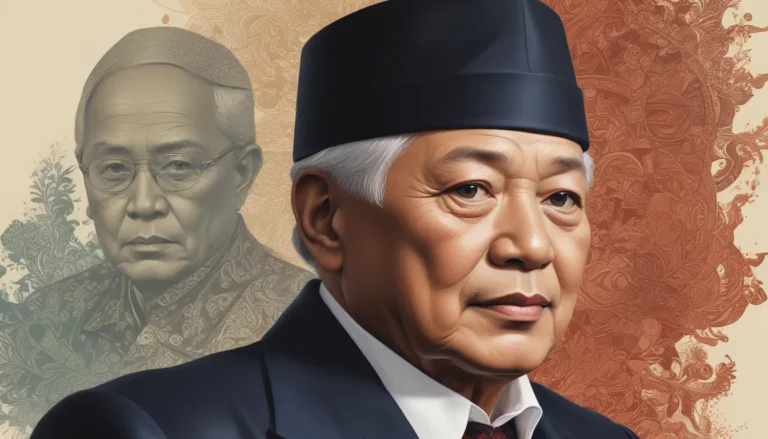The images in our articles may not match the content exactly. They are used to grab your attention, not to show the exact details in the text. The images complement the text but do not replace it.
Jean-Paul Sartre, a renowned philosopher, writer, and political activist, continues to intrigue and inspire with his profound insights into existentialism and human freedom. Delving into the life and work of this influential figure unveils a tapestry of complexity, creativity, and controversy. In this article, we will embark on a journey to explore 13 fascinating facts about Jean-Paul Sartre, shedding light on his personal life, intellectual contributions, and enduring legacy. From his refusal of the Nobel Prize to his revolutionary ideas on freedom and responsibility, each fact offers a glimpse into the mind of one of the most influential thinkers of the 20th century.
Unveiling the Enigmatic Jean-Paul Sartre
Jean-Paul Sartre’s Bold Rejection of the Nobel Prize
In a surprising twist of fate, Jean-Paul Sartre declined the prestigious Nobel Prize in Literature in 1964. Despite his status as a revered philosopher and writer, Sartre made a bold statement by refusing to accept the award, citing concerns about compromising his principles and independence as a writer. This act of defiance underscored Sartre’s unwavering commitment to his intellectual integrity and autonomy.
The Essence of Existentialism: Sartre’s Key Role in the Movement
As a pivotal figure in the existentialist movement, Sartre delved into profound themes of freedom, individuality, and the existential angst of human existence. Through seminal works like “Being and Nothingness” and “No Exit,” Sartre left an indelible mark on philosophical discourse, challenging conventional notions of reality, identity, and personal responsibility. His exploration of the complexities of human consciousness continues to shape philosophical inquiry and stimulate intellectual debate.
A Warrior of Words: Sartre’s Role in the French Resistance
Amidst the turmoil of World War II, Jean-Paul Sartre displayed his courage and conviction as an active participant in the French Resistance. By utilizing his literary talents as a propagandist, Sartre countered Nazi and Vichy propaganda, advocating for freedom, justice, and resistance against oppression. This experience left an indelible imprint on his political beliefs and strengthened his resolve to fight for social change and human rights.
Unveiling the Personal Life of Jean-Paul Sartre
Navigating the Abyss: Sartre’s Philosophical Exploration of Human Relationships
In his renowned play “No Exit,” Sartre introduced the iconic phrase “Hell is other people,” encapsulating the notion that human existence is inherently entwined with the judgment and scrutiny of others. This profound insight into the complexities of interpersonal dynamics resonates with audiences to this day, inviting reflection on the nature of human connection and social interaction.
A Tale of Two Minds: Sartre’s Lifelong Partnership with Simone de Beauvoir
Jean-Paul Sartre’s enduring relationship with Simone de Beauvoir transcended conventional boundaries, encompassing a deep intellectual and romantic partnership that spanned over five decades. Their unconventional approach to love, desire, and intellectual camaraderie challenged societal norms and inspired generations with their commitment to authenticity, freedom, and mutual respect.
Embracing the Unconventional: Sartre’s Bohemian Lifestyle
Throughout his life, Jean-Paul Sartre defied societal conventions and embraced an unconventional way of living. By eschewing materialism, traditional relationships, and societal expectations, Sartre embodied a bohemian spirit that championed individual freedom, creative expression, and intellectual exploration. His audacious lifestyle serves as a testament to his unwavering commitment to personal autonomy and intellectual integrity.
Unraveling the Philosophical Tapestry of Jean-Paul Sartre
Drawing Inspiration: Sartre’s Affinity with Friedrich Nietzsche
Jean-Paul Sartre found inspiration in the philosophical ideas of Friedrich Nietzsche, particularly his rejection of objective truth and advocacy for individualism. Nietzsche’s concept of the “superman” and emphasis on the will to power resonated deeply with Sartre’s existentialist beliefs, catalyzing a profound intellectual dialogue that shaped Sartre’s philosophy and worldview.
Literary Luminary: Sartre’s Seminal Work “Nausea”
In his groundbreaking novel “Nausea,” Jean-Paul Sartre explored the concept of existential dread and the quest for authenticity in a seemingly chaotic and meaningless world. This seminal work delves into the depths of human consciousness, confronting readers with existential questions of identity, meaning, and self-discovery. “Nausea” stands as a testament to Sartre’s literary genius and his unflinching examination of the human experience.
A Voice for Justice: Sartre’s Political Activism and Anti-Colonial Stance
Jean-Paul Sartre leveraged his intellectual influence to champion political causes and support social movements dedicated to justice and liberation. His vocal opposition to French colonialism and advocacy for decolonization, particularly in Algeria, solidified his reputation as a staunch advocate for human rights, equality, and freedom. Sartre’s unwavering commitment to social change reflects his belief in the transformative power of collective action and solidarity.
Embracing Sartrean Philosophy: A Path to Personal Freedom and Responsibility
The Philosophy of Radical Freedom: Sartre’s Emphasis on Autonomy and Choice
Central to Jean-Paul Sartre’s philosophy is the notion of radical freedom, which posits that individuals possess the unbridled agency to choose their actions and shape their destinies. This principle of existential autonomy underscores Sartre’s belief in the inherent power of personal choice and the imperative of taking responsibility for the consequences of one’s decisions. In embracing radical freedom, individuals unlock the potential to forge their own paths and define their existence on their own terms.
Exploring the Depths of Human Emotions: Sartre’s Insights on Emotional Existence
In his groundbreaking work “Sketch for a Theory of the Emotions,” Jean-Paul Sartre delved into the intricate fabric of human emotions, examining how our emotional experiences shape our perceptions, motivations, and interpersonal relationships. By illuminating the profound influence of emotions on human existence, Sartre highlighted the complex interplay between our inner world and external reality, offering insights into the multifaceted nature of emotional life and personal identity.
A Legacy of Influence: Sartre’s Impact on Literature, Art, and Culture
Jean-Paul Sartre’s philosophical legacy reverberates across diverse realms of literature, art, and culture, inspiring generations of creators and thinkers to explore existential themes and grapple with questions of meaning and authenticity. The enduring influence of existentialism, rooted in Sartre’s philosophical teachings, continues to shape artistic expression, intellectual inquiry, and social discourse, fostering a deeper understanding of the human condition and the quest for self-discovery.
Unveiling the Enigma: Jean-Paul Sartre’s Lasting Legacy and Enduring Relevance
Pioneering Spirit: Sartre’s Impact on Personal Growth and Self-Actualization
Jean-Paul Sartre’s philosophy of existentialism serves as a beacon of inspiration for individuals seeking to cultivate personal growth, foster self-actualization, and navigate the complexities of modern life. By embracing the principles of freedom, responsibility, and self-determination, individuals can harness the transformative power of Sartrean philosophy to chart their own course, pursue their passions, and forge authentic connections with the world around them.
The Tapestry of Truth: Sartre’s Ongoing Influence and Intellectual Legacy
In conclusion, Jean-Paul Sartre’s profound insights into existentialism, human freedom, and the nature of existence continue to resonate with audiences worldwide, offering a tapestry of truth and wisdom that invites exploration, contemplation, and dialogue. By unraveling the enigma of Sartre’s life and philosophy, we gain a deeper appreciation for his indelible impact on intellectual discourse, literary creativity, and social activism. Whether delving into the complexities of human emotions or pondering the essence of personal freedom, Sartre’s enduring legacy remains a testament to the power of ideas, creativity, and the enduring quest for truth and authenticity.
Frequently Asked Questions
-
What is Jean-Paul Sartre best known for?
Jean-Paul Sartre is best known for his contributions to existentialism, his influential works of literature, and his unwavering commitment to personal freedom and responsibility. -
Was Jean-Paul Sartre involved in politics?
Yes, Jean-Paul Sartre was actively engaged in political activism, championing causes such as anti-colonialism, social justice, and human rights. -
What is existentialism?
Existentialism is a philosophical movement that emphasizes individual existence, freedom, and the quest for meaning in a seemingly indifferent universe. -
Did Jean-Paul Sartre win any awards?
Jean-Paul Sartre was awarded the Nobel Prize in Literature in 1964, although he declined the honor due to his principled opposition to institutionalized recognition. -
How has Jean-Paul Sartre influenced literature and philosophy?
Sartre’s intellectual legacy has profoundly influenced literature, philosophy, and cultural discourse, inspiring generations of thinkers, artists, and activists to explore existential themes and grapple with questions of human existence and personal authenticity.
Unraveling the enigmatic persona of Jean-Paul Sartre unveils a captivating tapestry of creativity, controversy, and conviction, inviting readers to embark on a journey of intellectual exploration and personal discovery. As we delve into the depths of Sartre’s life and philosophy, we encounter a visionary thinker whose insights continue to illuminate the human experience and provoke thought-provoking dialogue on the nature of existence, freedom, and personal responsibility. Embrace the legacy of Jean-Paul Sartre and embark on a quest for truth, authenticity, and self-discovery in a world rich with intellectual treasures and philosophical wonders.






